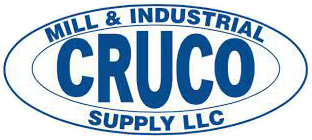Industry Spotlight: How Cruco Supply Tailors Solutions for Different Business Sectors

Every industry faces unique supply chain challenges that require specialized understanding and customized approaches. What works for automotive manufacturing may not translate effectively to healthcare distribution, and retail supply chains operate under entirely different pressures than construction or food service operations. Recognizing these distinctions and developing industry-specific solutions has become essential for supply chain success in today’s specialized economy.
Understanding Industry-Specific Requirements
The foundation of effective supply chain management lies in understanding that no two industries operate exactly alike. Each sector has distinct regulatory requirements, quality standards, delivery expectations, and operational constraints that shape how supply chains must function.
Consider the pharmaceutical industry, where strict temperature controls, chain of custody documentation, and regulatory compliance create complex requirements that don’t exist in other sectors. Meanwhile, the construction industry deals with project-based demand patterns, seasonal variations, and the challenge of delivering materials to constantly changing job sites.
These fundamental differences require supply chain partners who understand not just logistics and procurement basics, but the specific nuances that make each industry unique.
Manufacturing: Precision and Continuity
Manufacturing operations depend on precisely timed material flows to maintain production schedules and minimize costly downtime. Supply chain disruptions in manufacturing can cascade quickly through production lines, affecting output, quality, and customer deliveries.
Successful manufacturing supply chains focus on supplier qualification programs that ensure consistent quality and delivery performance. They implement just-in-time delivery strategies that reduce inventory carrying costs while maintaining production continuity. Advanced planning systems coordinate material requirements across multiple production facilities and product lines.
Quality control becomes particularly critical in manufacturing supply chains, where defective components can halt entire production runs. Supplier certification programs, incoming inspection protocols, and continuous quality monitoring help maintain the standards that manufacturing operations require.
Healthcare: Safety and Compliance First
Healthcare supply chains operate under some of the most stringent regulatory requirements of any industry. Patient safety depends on reliable access to medical supplies, pharmaceuticals, and equipment, making supply chain performance literally a matter of life and death.
Temperature-controlled storage and transportation are essential for many medical products. Cold chain management requires specialized equipment, trained personnel, and continuous monitoring to ensure product integrity throughout the distribution process. Documentation requirements extend beyond typical commercial standards to meet FDA and other regulatory compliance needs.
Inventory management in healthcare must balance cost control with the critical need to avoid stockouts of essential supplies. Emergency preparedness requires maintaining strategic reserves while managing expiration dates and product rotations. Healthcare supply chains also need rapid response capabilities to address urgent needs and unexpected demand spikes.
Retail: Speed and Flexibility
Retail supply chains face the challenge of rapidly changing consumer demands, seasonal variations, and the need to maintain optimal inventory levels across multiple locations. E-commerce has intensified these pressures by creating expectations for faster delivery times and broader product availability.
Successful retail supply chains leverage advanced forecasting systems that incorporate sales data, seasonal patterns, and market trends to predict demand across thousands of products and locations. Distribution networks must be designed for both efficiency and flexibility, enabling rapid response to changing market conditions.
Omnichannel retail operations require supply chains that can seamlessly support in-store, online, and mobile commerce channels. This includes capabilities for ship-from-store fulfillment, buy-online-pickup-in-store services, and efficient returns processing across all channels.
Construction: Project-Based Complexity
Construction supply chains face unique challenges related to project-based demand patterns, site-specific delivery requirements, and the coordination of multiple trades and contractors. Material deliveries must be precisely timed to match construction schedules while accommodating the constraints of active job sites.
Weather dependencies, permit delays, and design changes create variability that construction supply chains must accommodate. Flexible delivery schedules, local stocking arrangements, and strong communication systems help manage these challenges.
Material handling capabilities become critical when delivering to construction sites with limited access, no permanent receiving facilities, and varying unloading equipment. Supply chain partners must understand these site-specific requirements and adapt their delivery methods accordingly.
Food Service: Freshness and Safety
Food service supply chains operate under strict food safety regulations while managing perishable products with limited shelf lives. Temperature control, sanitation protocols, and traceability requirements create complex operational requirements throughout the supply chain.
Delivery scheduling must account for restaurant operating hours, storage capacity limitations, and the need to maintain proper food safety temperatures. Many food service operations require multiple deliveries per week to ensure freshness while minimizing storage requirements.
Menu planning and seasonal availability create demand patterns that require flexible sourcing capabilities and strong supplier relationships. Supply chain partners must understand food service operations, regulatory requirements, and the critical importance of consistent quality and freshness.
Technology: Rapid Innovation Cycles
Technology sector supply chains must accommodate rapid product innovation cycles, component obsolescence, and the challenge of forecasting demand for new products. Global sourcing of specialized components creates additional complexity in managing lead times and quality standards.
Product life cycles in technology are often measured in months rather than years, requiring supply chains that can quickly adapt to new product introductions while managing end-of-life transitions for discontinued items. Component allocation and shortage management become critical capabilities during supply constraints.
Quality and authenticity verification are essential given the prevalence of counterfeit components in technology supply chains. Supplier qualification programs and incoming inspection protocols help ensure component authenticity and performance standards.
Automotive: Just-in-Time Precision
Automotive supply chains have pioneered many modern supply chain practices, including just-in-time delivery, supplier development programs, and lean manufacturing principles. The complexity of modern vehicles, with thousands of components from hundreds of suppliers, requires exceptional coordination and quality control.
Delivery precision becomes critical when automotive manufacturers operate with minimal buffer inventory. Suppliers must meet exact delivery windows, often within hours of production requirements. This requires sophisticated planning systems and strong supplier performance management.
Quality requirements in automotive supply chains are exceptionally demanding, with zero-defect expectations and extensive supplier qualification processes. Supply chain partners must understand automotive quality standards and implement appropriate quality assurance programs.
The Value of Industry Expertise
Successful supply chain management requires more than generic logistics capabilities. It demands deep understanding of industry-specific requirements, regulatory compliance needs, and operational constraints that vary significantly across different business sectors.
Supply chain partners who invest in developing industry expertise can provide more effective solutions, better risk management, and improved performance outcomes. This expertise translates into reduced costs, improved quality, and enhanced competitive advantage for their clients.
The complexity of modern business operations makes it increasingly difficult for companies to maintain internal expertise across all aspects of supply chain management. Industry-focused supply chain partnerships enable businesses to access specialized knowledge and capabilities without the investment required to develop these competencies internally.
Whether your business operates in manufacturing, healthcare, retail, construction, or any other specialized sector, the right supply chain partner can make a significant difference in your operational performance and competitive position. If you’re looking to optimize your industry-specific supply chain challenges or explore how tailored solutions might benefit your operations, consider partnering with specialists like Cruco Mill & Industry Supply who understand the unique requirements of your business sector. The investment in industry-focused expertise often pays dividends in improved efficiency, reduced risk, and enhanced customer satisfaction.
